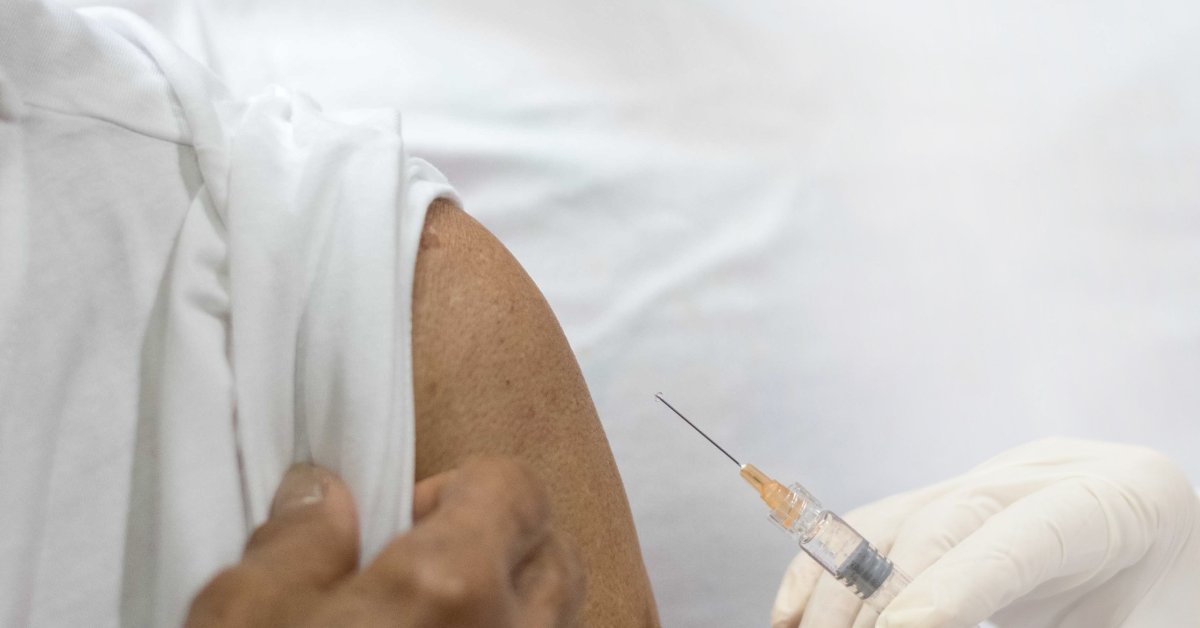Should You Get a Measles Booster? A Comprehensive Guide
Editor’s Note: Concerns about measles resurgence have led to increased questions about booster shots. This article provides a comprehensive overview of the current recommendations.
Why This Topic Matters
Measles, once considered eradicated in many parts of the world, is experiencing a concerning resurgence. Understanding the need for a measles booster, or even an initial vaccination, is crucial for public health. This article will explore the effectiveness of the measles vaccine, who needs a booster, and the potential consequences of insufficient immunity. We will examine current CDC guidelines and address common misconceptions surrounding measles vaccination. This information is vital for individuals, families, and healthcare professionals alike.
Key Takeaways
| Point | Summary |
|---|---|
| Measles Vaccine Efficacy | Highly effective, but immunity can wane over time. |
| Booster Shot Need | Primarily for those with compromised immunity or born before 1957. |
| Risks of Measles | Severe complications, including pneumonia, encephalitis, and death are possible. |
| CDC Recommendations | Follow current guidelines based on age and vaccination history. |
| Importance of Vaccination | Protecting yourself and vulnerable populations from a highly contagious disease. |
Should You Get a Measles Booster?
The resurgence of measles highlights the critical importance of maintaining adequate immunity. While the measles, mumps, and rubella (MMR) vaccine is highly effective, immunity can weaken over time, particularly in individuals with compromised immune systems. This raises the question: should you get a measles booster?
Key Aspects:
- Vaccine Effectiveness: The MMR vaccine is remarkably effective, offering protection against measles in over 97% of those vaccinated.
- Immunity Waning: While long-lasting, immunity can wane, leaving individuals susceptible to infection.
- Risk Factors: Age, compromised immune systems (due to illness or medication), and inadequate initial vaccination are significant risk factors.
Detailed Analysis:
The CDC recommends two doses of the MMR vaccine for most individuals. For those born before 1957, proof of immunity is generally considered sufficient. However, individuals born after 1957 who are unsure of their vaccination status, or who have compromised immune systems, should consult their doctor to discuss the need for a booster. For those with weakened immunity, a titre test can determine the level of existing antibodies.
Measles Vaccine: Understanding the Risks and Benefits
Introduction: The decision to receive a measles booster involves weighing the risks against the benefits.
Facets:
- Risks: While rare, side effects like fever, rash, and swelling at the injection site are possible. Severe allergic reactions are extremely uncommon.
- Benefits: Protection against a highly contagious and potentially deadly disease. This protects not only the individual but also contributes to herd immunity, safeguarding vulnerable populations.
- Examples: Recent outbreaks demonstrate the severe consequences of low vaccination rates, emphasizing the importance of maintaining immunity.
- Mitigations: Following the doctor's recommendations, reporting any side effects, and ensuring proper vaccine storage mitigate risks.
- Impacts: Individual and community health, reducing hospitalizations and fatalities.
Who Needs a Measles Booster?
Introduction: Identifying individuals who require a measles booster is critical for preventative public health strategies.
Further Analysis: Individuals with weakened immune systems due to HIV, chemotherapy, or other conditions are at high risk and may require additional doses or different vaccination strategies. Healthcare workers, who are frequently exposed to potential infection, may also require regular checks and boosters. Pregnant women should consult with their doctor before receiving any vaccines.
Closing: Understanding your individual risk profile and vaccination history is crucial in determining the necessity of a measles booster. Consult a healthcare professional for personalized advice.
People Also Ask (NLP-Friendly Answers)
Q1: What is a measles booster?
A: A measles booster is an additional dose of the MMR (measles, mumps, rubella) vaccine to maintain or restore immunity to measles.
Q2: Why is a measles booster important?
A: Measles immunity can wane over time, increasing susceptibility to infection. Boosters ensure adequate protection against this highly contagious disease.
Q3: How can a measles booster benefit me?
A: A booster protects you from measles, a potentially serious illness with potentially life-threatening complications.
Q4: What are the main challenges with measles boosters?
A: The main challenges are ensuring sufficient access to vaccines and addressing vaccine hesitancy.
Q5: How to get started with a measles booster?
A: Consult your doctor to discuss your vaccination history and determine if a booster is necessary.
Practical Tips for Getting a Measles Booster
Introduction: These tips will help you navigate the process of getting a measles booster safely and effectively.
Tips:
- Consult your doctor: Discuss your vaccination history and any concerns.
- Check your vaccine records: Review your immunization history to confirm previous MMR vaccinations.
- Schedule your appointment in advance: Avoid unnecessary delays.
- Prepare for potential side effects: Minor side effects like soreness or fever are possible.
- Inform your doctor of any allergies or health conditions: This ensures safe administration.
- Stay hydrated and rest after the vaccination: This can aid recovery.
- Report any unusual symptoms: Contact your doctor if you experience severe reactions.
- Encourage others to get vaccinated: Herd immunity protects everyone.
Summary: These practical tips ensure a smooth and informed process for receiving a measles booster.
Transition: Let's now summarize the key takeaways from this article.
Summary
This article explored the importance of measles vaccination, particularly in light of recent outbreaks. We examined the effectiveness of the MMR vaccine, discussed who might need a booster, and addressed common concerns. Remember to consult your doctor to determine your individual needs.
Closing Message
The fight against measles is ongoing. By understanding the importance of vaccination and taking proactive steps to ensure sufficient immunity, we can protect ourselves and our communities from this preventable disease. Share this information with your network to raise awareness and promote public health.
Call to Action (CTA)
Schedule your MMR vaccination today! Visit [link to relevant resource, e.g., CDC website] for more information. Subscribe to our newsletter for updates on public health and vaccination recommendations.

